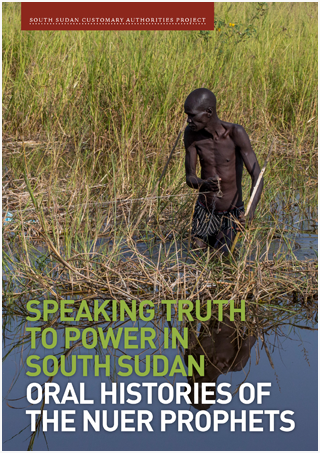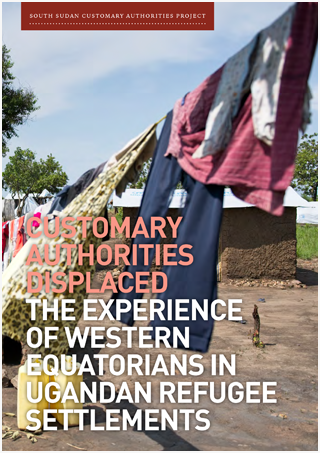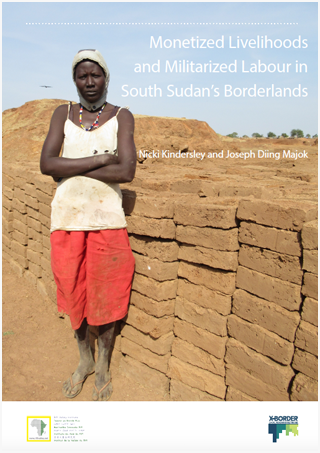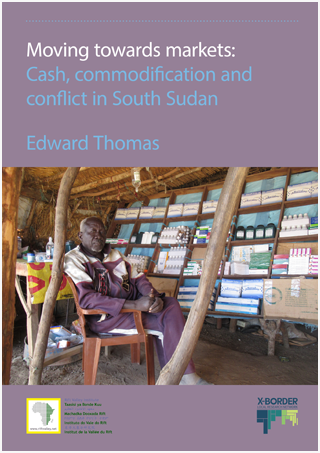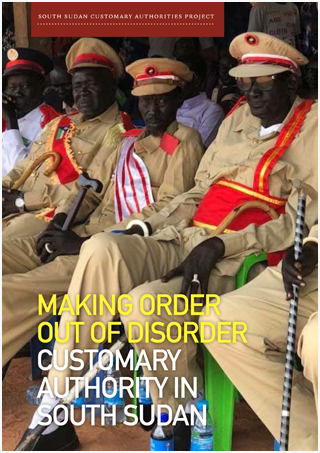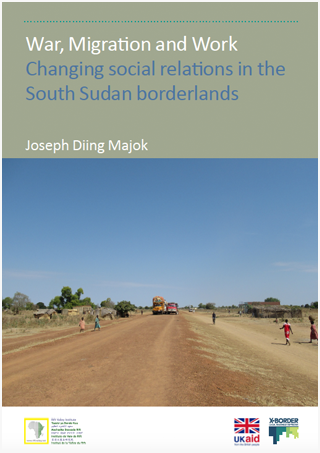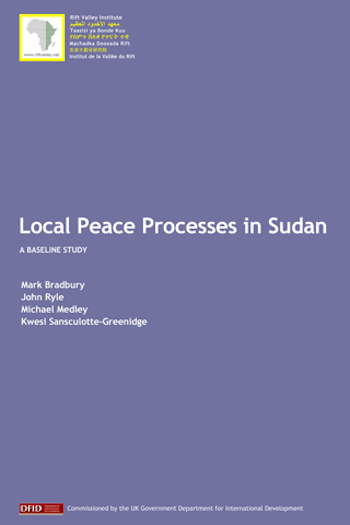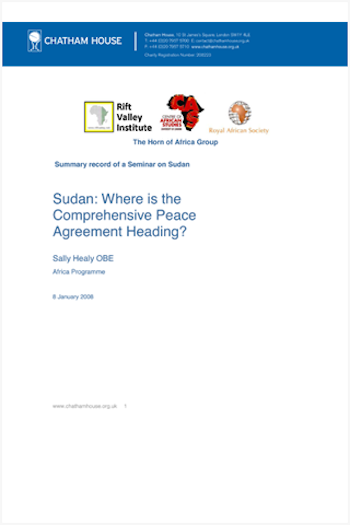Prophets—those recognised as having been ‘seized’ by a divinity—have played an important role in the history of South Sudan, particularly that of the Nuer people. They were seen as being powerful political actors and, alongside chiefs, important intermediaries for…
RVI publishes books, research reports, research papers, briefings and meeting reports in a range of formats. Publications cover policy, research, arts, culture and local knowledge in the countries of eastern and central Africa. Research publications—books, reports and papers—are peer-reviewed. Some RVI publications are also available in French and/or Arabic.
The RVI is a signatory of the Budapest Open Access Initiative (2001); all publications are free for download in PDF format under Creative Commons licences. The views expressed in books and reports published by the RVI are those of the authors, not the Institute.
SEARCH
PUBLICATION TYPE
LANGUAGE
REGION
COUNTRY
South Sudan’s violent conflicts continue to plague its people. An estimated four million South Sudanese have been forcibly displaced since December 2013, and more than a million have sought refuge in Uganda where communities have largely reassembled without their…
Following the 2005 Comprehensive Peace Agreement (CPA) and the subsequent independence of South Sudan in 2011, many agro-pastoralist and pastoralist areas of the country have experienced an upsurge of livestock raiding, counter raiding and cycles of revenge killing. Eastern…
Northern Bahr el-Ghazal, like much of South Sudan, is in a protracted state of social and economic crisis, rooted in generations of armed conflict, forced resettlements, and a shift towards a cash and market economy. Since the 1980s, family…
Fifty years ago, most households in South Sudan produced the grain they ate, organizing agricultural labour and distributing small surpluses mostly through kinship and other social networks. Now, the majority of households buy most of their food. This transition…
South Sudan’s customary authorities play an important role in local government, justice, and as intermediaries or brokers between local communities and the government. While significant attention was paid to the role of customary authorities in South Sudan’s statebuilding project…
War, Migration and Work outlines how the changing economy has affected social relations in the Northern Bahr el-Ghazal borderlands, particularly between the old and the young, and men and women. The result is a fraying social system, where intra-family…
An analytical account of the growth of “people-to-people” peace meetings in Sudan and its borderlands, with a comprehensive bibliography and time-chart of peace meetings over two decades in Southern and Northern Sudan (including Darfur and the transitional zone between…
This report assesses obstacles and risks to the implementation of the 2005 Comprehensive Peace Agreement and outlines steps to be taken to avoid a return to conflict. The product of a seminar held by the Horn of Africa Group,…
A guide to Sudan’s electoral system – one of the most complex in the world – and its effects on the distribution of power. The report analyses government documents to reveal errors and ambiguities in the demarcation of electoral…
Recent Publications

Rethinking Aid in Sudan and South Sudan
January 28, 2026
The brief draws on a joint convening held in Kampala, Uganda, in November 2025, which brought together more than 45 Sudanese and South Sudanese participants representing more than 30 grassroots organizations and international NGOs. Its primary objective is to amplify

EWNET Writes: Writing Workshop Session I
December 18, 2025
The Ethiopian Women Researchers Network (EWNET) inaugural writing workshop series aims to not only provide women researchers with uninterrupted time for their scholarly projects, but also build a supportive academic community. The first session, entitled ‘EWNET Writes: Writing Workshop Session

SSC-Khaatumo: Perspectives on the significance and implications of its formation
December 12, 2025
On 15 April 2025, during a visit to the city of Las Anod in Sool, Prime Minister Hassan Abdi Barre officially declared the federal government’s recognition of SSC-Khaatumo (SSC-K hereafter) as a federal member state, marking an important milestone in

